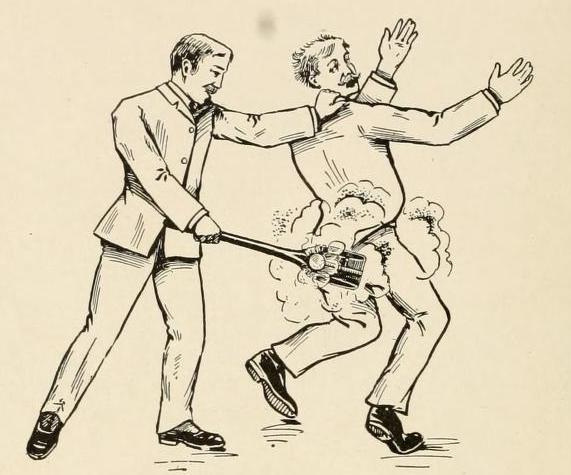
Minnesota lawyers, are supposedly self-regulating. Do you get the joke? What in the world is “self-regulation”? (See The Myth of Self-Regulation, Fred C. Zacharias (Minnesota Law Review)). Who thought up this notion of self-regulation, we wonder? (Hint: Lawyers).
Seriously, the concept of self-regulation is complicated and nuanced. As such, it is inappropriate to address in any intelligent way in a blog post. However, this is the United States of America. No one can stop us from touching on any subject fleetingly, in a maybe unintelligent but maybe thought-provoking way. This is our modest goal.
Every experienced Minnesota civil litigator can tell stories of other Minnesota civil litigators’ stupidity, incivility, cupidity, venality, and viciousness. (A subset of experienced Minnesota civil litigators (some of the more honest ones) can tell stories of their own.)
By and large, Minnesota lawyers can behave badly without fear of serious consequences and, for many, without any fear of any consequences. (We are not referring to serious misconduct such as direct and intentional misappropriation of client money and so on. That level of “bad” will generally catch the attention of law enforcement, etc.) We’re referring to garden-variety misconduct such as (1) gratuitous, ineffective, expensive non-cooperation and hostility in civil litigation (indirectly misappropriating client money by complicating, delaying, and extending lawsuits) and/or (2) sloppy, dilatory, cavalier attitudes in civil litigation (i.e., bringing frivolous legal claims, thereby indirectly misappropriating client money by complicating, delaying, and extending lawsuits). (We qualify our comments to refer to civil litigation only because that is our business. We are not qualified to opine on whether or to what extent this kind of behavior taints the operation of criminal law in our community.)
Enter U.S. District Court Judge Patrick J. Schiltz (D. Minn.) who, from time to time, wields the judicial opinion as a rod (in the sense of “spare the rod, spoil the child”). He has done so recently in ARP Wave LLC v. Salpeter, et al. In the ARP Wave decision (on cross-motions for summary judgment), Judge Schiltz highlights both kinds of lawyer misconduct (and includes deposition transcript quotations).
Minnesota civil litigators will read the linked decision; some will cackle or chuckle internally over Judge Schiltz’s withering critique of the lawyers’ lawyering in the case. Some will shudder, having the self-awareness to recognize that they, themselves, have not always “been best” (to echo an exhortation of former First-Lady Melania Trump). Some will feel sympathy for the lawyers involved who are publicly taken to task for conduct that is all too common in Minnesota civil litigation (and even worse elsewhere in the United States, we believe).
Regardless, we like to think that Judge Schiltz might be stepping into a vacuum, giving voice where one is lacking, functioning a bit like a one-person regulatory system, shining a light on lawyers’ misconduct, which normally gets little attention and goes without consequence.
Regardless of our immediate responses of schadenfreude, sympathy, or what have you to the order in ARP Wave, we hope that Judge Schiltz’s periodic public punishments of lawyer mis-steps (and his other clearly written, thorough, succinct, legal analyses) serve a purpose. Let us hope they give our legal community some direction as to the right way and the wrong way to do our work, and that they function as effective regulation, which will serve our legal community and the broader community by reining in conduct that hurts our legal system, lawyers’ reputations more broadly, and too many civil litigants.
